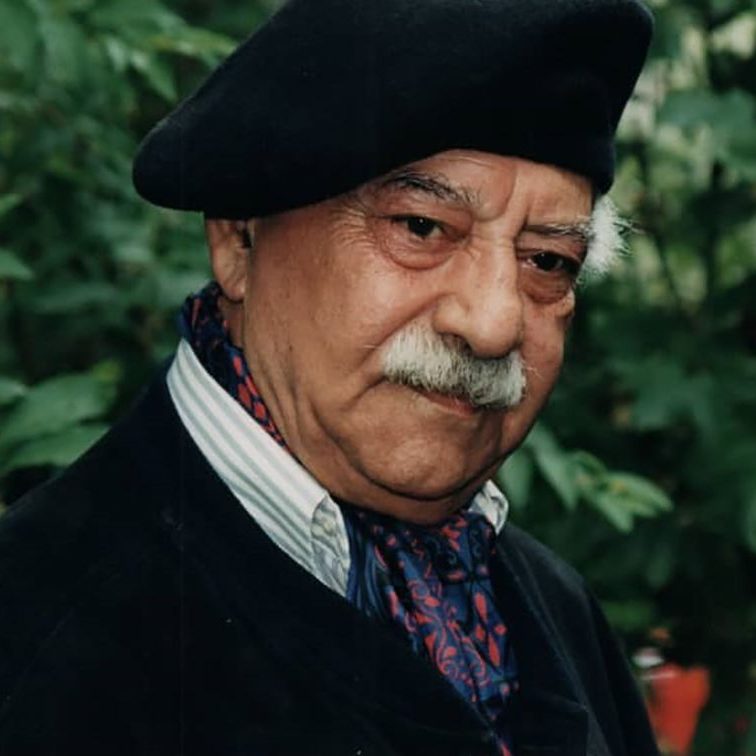

Nusrat-Allāh Karīmī (December 22,1924–December 3, 2019) was an actor, director, and sculptor. He used humor to criticize superstitious beliefs based on customs and religion in Iranian families in his films. He began his career in the performing arts with Pīsh’pardah’khānī and moved on to work in theater alongside ‛Abd al-Husayn Nūshīn in 1940. He later studied theater and animation filmmaking in Italy and Czechoslovakia, where he earned a master’s degree in dramatic arts in the 1950s.
Upon his return to Iran, he began producing animated films, followed by his work for Iranian National Television in the 1970s. As a pioneer of Iranian puppetry and animation, he also co-founded the puppetry department at the University of Tehran and produced numerous animated and puppet works, including Dil-i mūsh, pūst-i palang (Mouse Heart, Leopard Skin, 1965) and Ādam shākh dar mīyārah (The Man Grows Horns, 1979). Later, he transitioned to feature filmmaking and directed and acted in comedies like Durūshkahchī (The Carriage Driver, 1971) and Mohallel (The Interim Husband, 1971). The latter was critical of Islamic marriage laws and the role of women in Iranian society. This stance displeased a segment of the clergy and religious conservatives, resulting in Karimi’s arrest following the 1979 Revolution. He faced the threat of execution. He was later banned from working in cinema, and devoted the rest of his life to teaching theater, puppetry, makeup, and animation. His acting career spanned six decades. Despite his prolific career in film and theater, he is primarily known for his role as Āqā Jūn in the popular 1976 TV series Dā’ī jān Nāpil’un (My Uncle Napoleon).


